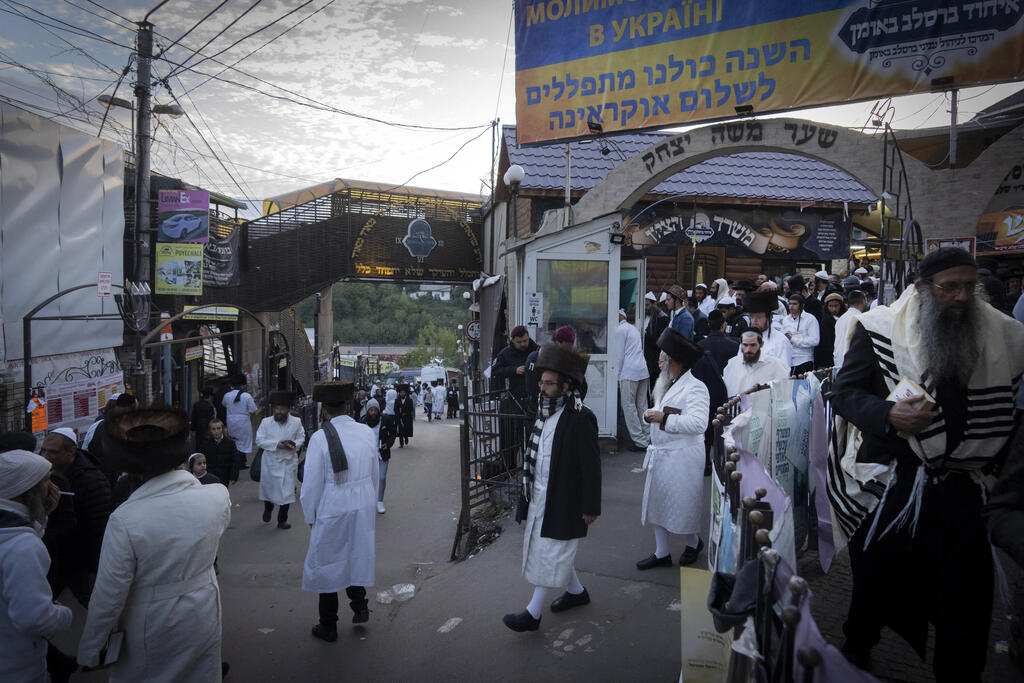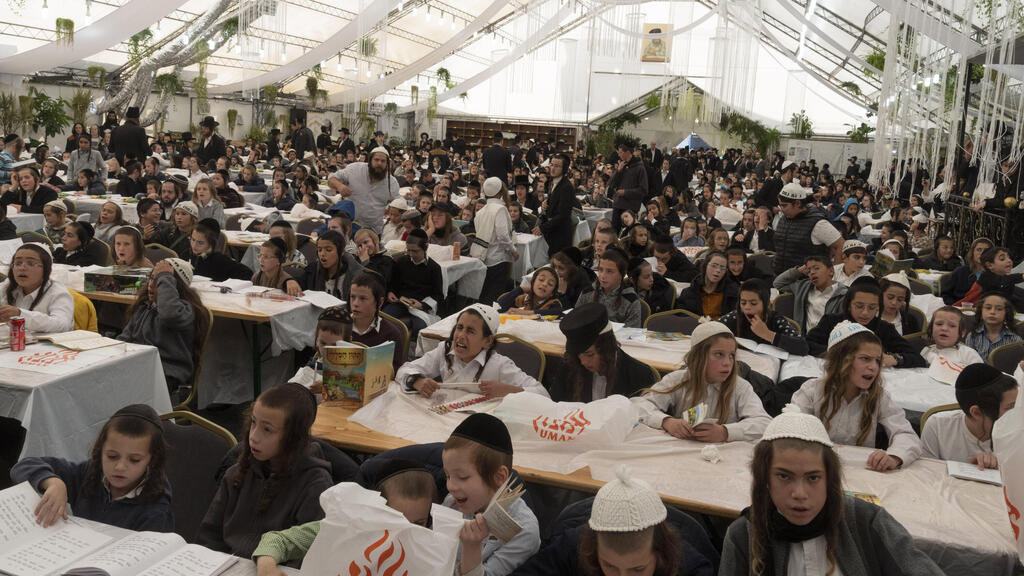Thousands of Hasidic Jewish pilgrims flocked to central Ukraine to mark the Jewish new year Sunday, ignoring international travel warnings as Russia struck more targets from the air and mobilized its citizens to stem losses in the war that has entered its eighth month.
The pilgrims, many traveling from Israel and further afield, converged on the small city of Uman, the burial site of Nachman of Breslov, a respected Hasidic rabbi who died in 1810.
4 View gallery


Hasidic Jewish pilgrims outside Rabbi Nachman's gravesite, in Uman, Ukraine
(Photo: AP)
The streets of one of Uman's central neighborhoods were packed with men of all ages wearing traditional black coats and long side curls. Some chanted prayers. Others screamed, shouted and danced. Advertisements and directional signs in Hebrew blanketed the area.
Some visitors, like Nahum Markowitz from Israel, have been making the journey for years and weren't about to let the war get in the way this year.
"We are not afraid. If we come to Rabbi Nachman, he will protect us for the whole year," said Markowitz, who has been visiting Uman since 1991, when the collapse of the Soviet Union made the pilgrimage accessible to foreign visitors.
Besides, he said, he is already familiar with the risk of war and the wail of sirens that comes from living in Israel.
The city, 200 kilometers (125 miles) south of the capital, Kyiv, typically attracts thousands of pilgrims for Rosh Hashanah, the Jewish new year, which begins in the evening Sunday and ends on Tuesday.
The Ukrainian embassy to Israel repeatedly urged those planning a pilgrimage to stay home, warning on Facebook that Russia has repeatedly targeted heavily populated areas and that "attacks cause real danger to your lives!"
The Israeli and American governments also cautioned citizens not to make the trip this year — and some of those warnings may have worked.
More than 35,000 pilgrims visited last year even in the face of pandemic travel restrictions, said local official Oleh Hanich.
This year's turnout was smaller, though still substantial, considering that no commercial flights are arriving in the country. The United Jewish Community of Ukraine said 23,000 pilgrims were in Uman as of Sunday.
"Neither coronavirus nor war stops them. For them, this is a holy place," Hanich said, while acknowledging "we can't guarantee their complete safety."
Rav Mota Frank, 54, initially had reservations about making the trip from Israel this year. But he decided it was worth the risk after realizing that the situation in Uman is calmer than at the front and seeing how Ukrainians themselves have reacted to the dangers of war.
"When there are air alarms, they do not hide in the basement, but try to be near the shelter," he said of the Ukrainians. "We in Israel are used to it — there is also a constant war. We are used to what life is like. And that's why it doesn't scare us much."
4 View gallery


Pilgrim citing prayer passionately at Rabbi Nachman's gravesite, in Uman, Ukraine
(Photo: AP)
Uman is relatively far from the front lines in Ukraine's east and south, though it is within the range of Russian missiles and has been struck before.
In 2020, thousands of pilgrims failed to reach Uman after Ukraine closed its borders due to a surge in COVID-19 infections.



